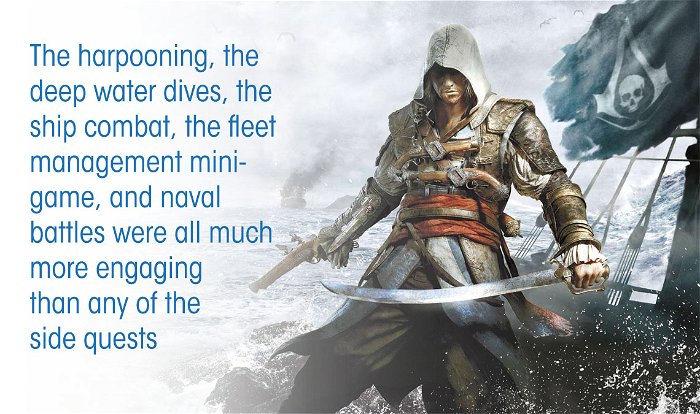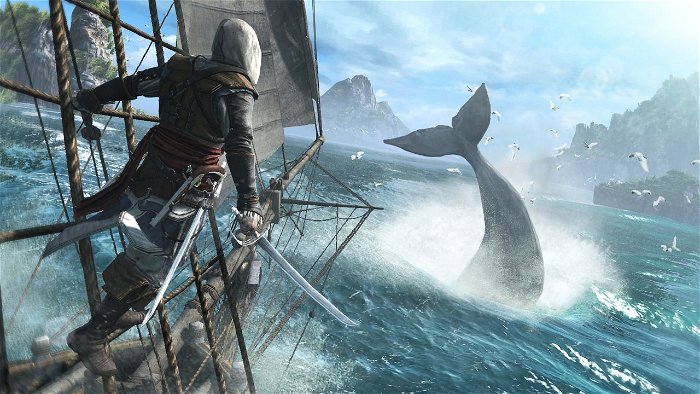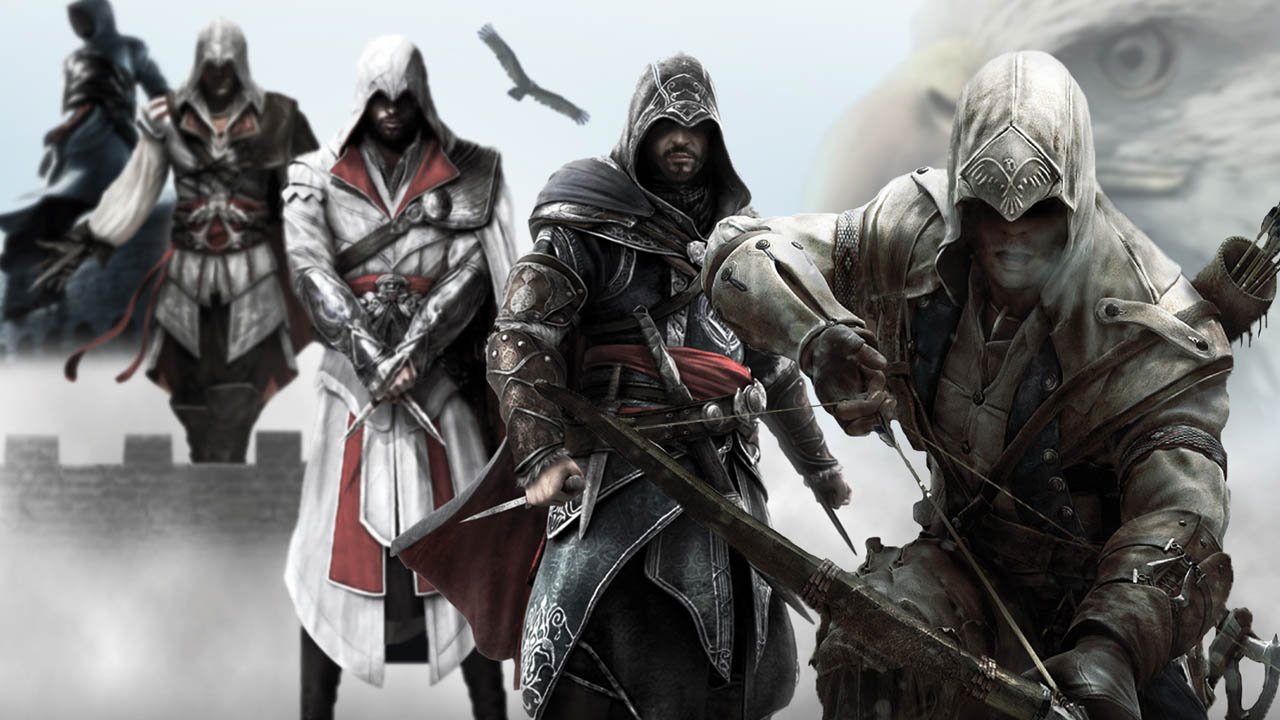Assassin’s Creed IV: Black Flag is a very good game. It’s also a game that just barely resembles the other entries to Ubisoft Montreal’s long-running stealth action series. This may have been something that was hinted at with Black Flag‘s pre-release marketing — footage that featured new protagonist Edward Kenway spending more time sailing the ocean than running around on land — yet the degree of departure from franchise conventions doesn’t become completely noticeable until a few hours spent playing the game itself.
Black Flag is a game about the Golden Age of Piracy, so it’s only natural that so much of its gameplay centres on sailing and naval battles. Just the same, players could be forgiven for thinking that these aspects of the game would contribute less to the experience than Assassin’s Creed traditionally land-based objectives. Rather than spending a lot of time scaling towers, infiltrating enemy forts, and chasing pickpockets, I spent most of my time away from Black Flag‘s story missions getting lost in its new, far less traditional activities. The harpooning, the deep water dives, the ship combat, the fleet management mini-game, and naval battles were all much more engaging than any of the side quests present in past Assassin’s Creed games. Even though Ubisoft Montreal has still crafted beautiful, time machine worthy portals of great cities, it was difficult to want to spend too much time hanging out in Nassau, Kingston, and Havana when the Caribbean Sea offered giant British man o’ wars to capture and actual honest-to-god white, battle-scarred sperm whales lurking beneath the waves.

Like past games in the series, it’s easy to forget about the main storyline and spend hours on end chasing one side activity or another in Black Flag. Ubisoft Montreal is uniquely skilled in sprinkling collectable items and optional missions throughout the settings of their games that are hard to ignore. Its games, for many players, are ultimately defined more by the structure of their side objectives than the experience offered through the primary story activities. Because of this, Black Flag, with its pirate ship upgrading and high seas exploration, feels the least familiar of any Assassin’s Creed to date.
I’m of two minds regarding the significant changes present in Black Flag. On the one hand, an annual videogame franchise like Assassin’s Creed can only avoid monotony by not just refining its gameplay, but innovating on past accomplishments. But on the other, I can’t help but wonder if Black Flag would have been a better game if it was divorced from the increasingly convoluted mythology that Assassin’s Creed has accumulated over the years. Edward Kenway’s story is only tangentially related to the events of the rest of the series and seems like it’s only a few plot points away from being a completely original title. When this is combined with a gameplay experience that marks such a significant departure from the traditional mechanics of past Assassin’s Creed games, it’s difficult to imagine what could have been if Ubisoft Montreal had released Black Flag as a wholly new property.

This was, of course, never likely to happen. Assassin’s Creed has become an extraordinarily popular series with powerful name recognition. Abandoning this in order to launch a brand new pirate game without easily marketable ties to an existing franchise would be a risky move (especially when Ubisoft is already taking chances in releasing newcomer Watch Dogs). Black Flag may have been slightly better if it was able to tell its own story without having to find ways to tie itself into the Assassin’s Creed series. A bit more time could have been spent exploring Kenway’s relationship with Blackbeard, Mary Read, and the rest of a rich cast of historical pirates, rather than focusing on how he became involved with the Templar and Assassin factions, for example. But, just the same, it’s far more preferable for the latest in a long running series of games to feel extremely fresh and not overly familiar. If developers and publishers need to keep producing sequels in order to hedge their bets in a rocky economic climate, an ever evolving series is the best possible result we can hope for. Black Flag may not always feel an awful lot like other games in its lineage, but if calling it Assassin’s Creed means it can exist, then that may have to be good enough.




